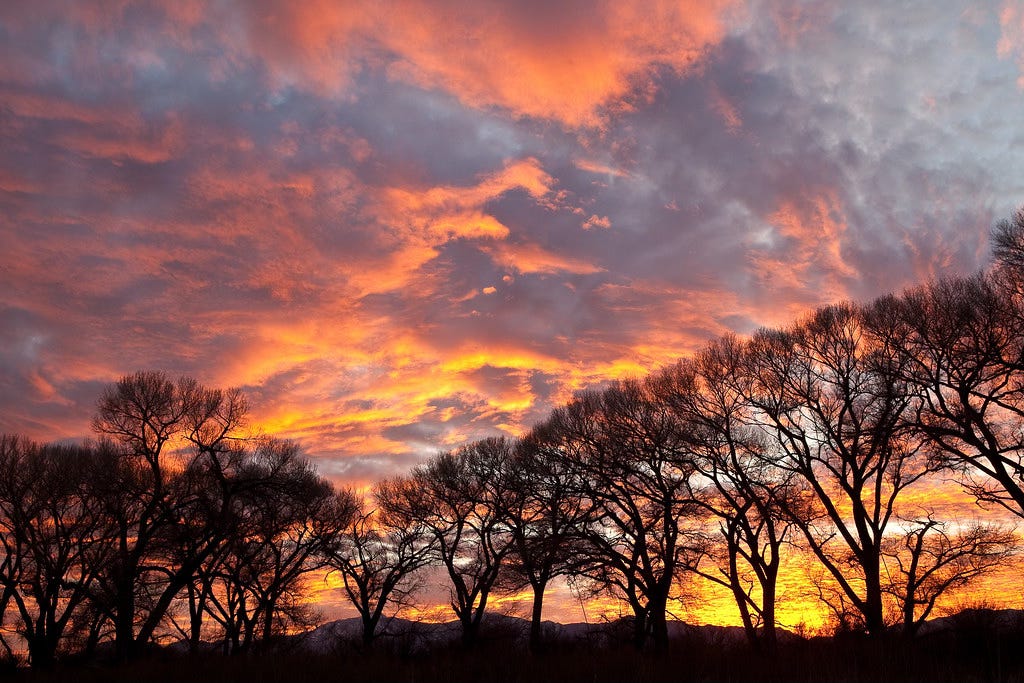Deep Uncertainty, Wicked Science and Climate Pragmatism
Judith Curry has written an excellent book—"Climate Uncertainty and Risk"—that begs us to rethink our response to the climate issues. It is very balanced and provokes serious thought on the subject.
I published a guest post from Judith Curry here and indicated I was buying her book to read. The title is “Climate Uncertainty and Risk, Rethinking Our Response.” I’ve now read the book and am pleased to recommend it to others who are interested in getting into the weeds of global warming a bit and truly desire to understand things from both sides. It does get into the weeds but in a way that the layman is not frozen out by the arcane language of scientists who want to be seen as mysterious. She makes everything understandable and she appeals for rationality in discussion of the matter.
Curry’s arguments are persuasive, but when I say arguments I’m not referring to pro and con in the way most climate debates proceed but, rather, to her desire for something she call “climate pragmatism.” She does so by carefully and repeatedly demonstrating how complex climate is and how difficult it is to sort things out when there is so much uncertainty. That’s what she means by “wicked science” — a term new to me but well known enough known for Ohio State University to offer a graduate level program on it. It addresses “wicked problems,” that are both complex and political in nature and demand interdisciplinary approaches to solve.

COVID was a wicked problem and the response became a debacle because almost everyone turned solely to supposed health experts and not only ignored myriad associated issues but deliberately squelched any thought or utterance of them. It was a gargantuan failure and a perfect illustration of why wicked science is necessary. Moreover, the COVID response demonstrated the absolute necessity of pragmatism in dealing with wicked problems. Climate change is such a problem as Curry proves throughout her book, because there are deep uncertainties everywhere you look, starting with how much of such change is due to natural variably versus the influence of our human activities.
Along the way, Curry makes a host of fabulous points, often by simply quoting others at the outset of each and every section of every chapter of her book. That’s a common practice with many writers but few do it as well or as much as she does and all serve to drive home her points. Her effective use of Mike Tyson’s "Everybody has a plan until they get punched in the mouth" quote couldn’t be more apropos to COVID or climate, for example.
Some of chief takeaways I got out of Curry’s book include the following:
Taking action on wicked problems must rest on a foundation of risk assessment.
Risk assessment, in turn, must rest on trust secured by “open dialogue around value assumptions” and there can be no room for suppressing it by calling others “deniers” or restricting speech on the subject.
Risk is typically in the eye of the beholder and an African nation is not going to worry about a prospective half-degree of warming when much of its population is starving and in desperate need of energy.
There is no proof of global warming being a crisis of sufficient weight compared to demands for affordable energy and food and this is why policies directed toward simplistic decisions of huge magnitude are suddenly being rejected or reversed around the world among both poor and rich nations.
The fact the IPCC has had to keep lowering its warming projections lends further credence to the lack of crisis or emergency that requires drastic action.
There are huge risks from a ‘pedal to the metal’ effort to end the use of fossil fuels and these risks are not being addressed properly today, which only raises the level of disagreements and avoids actions that most could agree upon.
If the IPCC determined that most or all of global warming was due to natural variability, policy makers would be directing their attention to adaptation, rather than mitigation and logic, therefore, suggests that’s the place to start if most agree some action is necessary.
Also supporting adaptation is the first course of action is the seldom discussed fact the IPCC projects humans will be far better off socioeconomically in the future, regardless of global warming.
The fact those who oppose fossil fuels also oppose nuclear energy, hydropower, big solar, big wind and absolutely critical transmission lines is not so much a matter of hypocrisy as cognitive dissonance that needs to challenged as such.
When we say we must preserve the current temperature, we are effectively judging what our grandchildren want and demanding action now to serve our own interests, which is of certainly questionable morality.
The only pragmatic approach is start small with what can be agreed upon and effectively implemented, evaluating and adjusting as needed, working at the smallest scale practical to each situation.
There is much, much more but that last point exhibits the principle of subsidiarity, although I don’t believe that word appears anywhere in the book. We ignore it at our peril and have been doing so for well over a century, ever since Teddy Roosevelt and Woodrow Wilson took us down the road of progressivism, which is really just another word for centralizing power and elevating decision-making to the top to then be delivered below by edict. Anytime a decision is removed from that unit of society where it can be made most effectively and pushed upward, there is a loss of both competence and trust. Nearly all our problems as a civil society derive from the failure to observe subsidiarity.
Buy this book. It’s a reservoir of common sense, which is an essential tool in dealing with wicked problems!
#Curry #Climate #WickedScience #Science #GlobalWarming #Certainty


